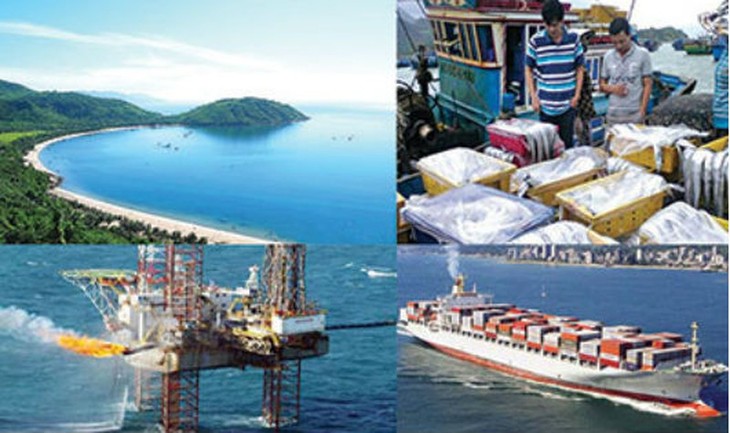(VOVWORLD) - The Vietnamese government on Friday issued a master plan on implementing a strategy for sustainable development of Vietnam’s marine economy until 2030 with a vision to 2045. The plan specifies solutions to capitalize on Vietnam’s advantages of a 3,260km coastline, more than 3,000 islands and islets, and 28 coastal provinces.
 (File photo) (File photo) |
The master plan puts forward six main solutions on ocean governance and coastal management: developing the marine and coastal economy; improving people's lives and developing sea-based culture; science, technology and development of marine human resources; the environment and response to natural disasters, climate change and rising sea levels; and national defense and security, foreign affairs and international cooperation.
Developing marine and coastal economy
The top solution is to invest in developing infrastructure for the tourism industry in key areas and islands, forming tourism service complexes, large-scale service projects and shopping centers, and developing ecotourism, adventure tours, and community-based tourism. Vietnam will pilot tours to islands combined with other marine services, intensify tourism promotion, diversify tourism products, and connect with international marine tours. Seaports will be further improved to meet industrialisation and modernisation requirements to lay a foundation for international integration and competition with regional seaports.
The master plan stresses the need to maintain the exploration of minerals, oil and gas, and non-traditional forms of hydrocarbons in deep-water sedimentary basins to increase mineral reserves. It pays attention to developing marine and coastal aquaculture and off-shore fishing.
Improving people’s living conditions, building a marine culture
Vietnam will improve its socio-economic infrastructure to better the living conditions and cultural life of people in coastal areas and islands, restore and promote festivals and historical sites, and preserve the cultural, architectural, and natural heritages of coastal communities. The resolution mentions the need to educate students at all levels about seas and oceans, climate change mitigation, and protecting natural resources.
Enhancing marine scientific and technological study
Regarding science, technology, and the development of marine human resources, the government urges innovation, application of advanced technology, and promotion of marine research and surveys. The Government called for scientific research and high-tech application centers related to marine biotechnology, aerospace science for marine surveillance, and deep-sea exploration, training of additional highly-skilled human resources, and greater international cooperation in marine research, environmental protection, natural disaster prevention, and climate change response.
The government urges the planning of coastal urban areas and economic and industrial zones and clusters, as well as increased investment in waste and wastewater treatment systems and marine animal rescue centers in protected areas. Sea and island data at ministries, sectors, and localities should be digitized and synchronized with the national database.